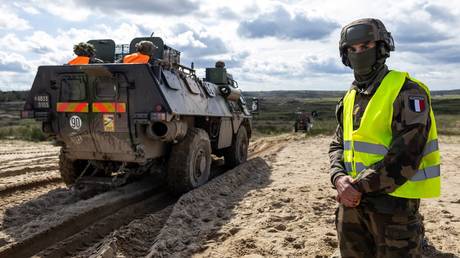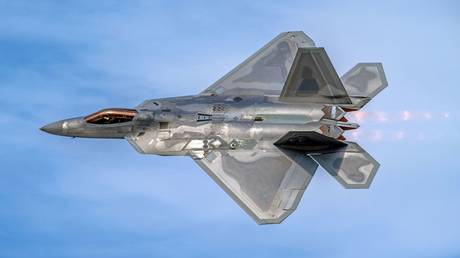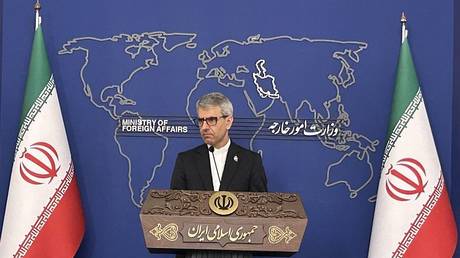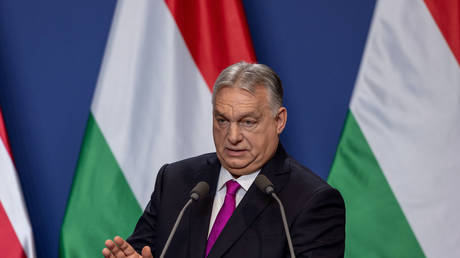
Aleksandr Syrsky has signed papers allowing NATO trainers to arrive in the country
The commander-in-chief of Kiev’s armed forces Aleksandr Syrsky has said that he supports the idea of French military instructors being deployed to Ukraine to train local troops.
Syrsky wrote in a Telegram post on Monday that he has already signed papers that would allow the NATO country’s servicemen to visit training centers in Ukraine “soon” to familiarize themselves with their infrastructure and staff.
“I welcome France’s initiative to send instructors to Ukraine to train Ukrainian military personnel,” he wrote.
The general also expressed belief that the “determination” of France to assist Ukraine would encourage Kiev’s other foreign backers to take part in the project to train troops on Ukrainian soil.
A few hours later, Ukraine’s Defense Ministry issued a statement clarifying Syrsky’s comment.
The ministry confirmed that Kiev had expressed an interest in hosting foreign instructors on its territory back in February, but stressed that it “was still in discussions with France and other countries on this issue.”
Ukraine’s Defense Ministry and the General Staff have, meanwhile, started preparing internal paperwork related to the deployment of the trainers in order “not to waste time on bureaucratic issues when the relevant decision is made,” it explained.
The French Defense Ministry told AFP that it is still studying the issue of sending instructors to Ukraine, but declined to confirm the deployment.
“Training on Ukrainian soil is one of the projects discussed since the conference on support for Ukraine convened by [French President Emmanuel Macron] on February 26,” it said. The project “continues to be the subject of work with the Ukrainians, in particular to understand their exact needs,” according to the ministry.
In February, Macron said that he couldn’t rule out the possibility of NATO member states sending troops to Ukraine amid the conflict with Russia. He has reiterated the claim several times over the past few months. According to the French leader, his policy of “strategic ambiguity” is intended to keep Moscow guessing about NATO’s intentions and the lengths it is willing to go to in support of Kiev.
Estonia and Lithuania have since then expressed a readiness to send either instructors or support troops to free up Ukrainian soldiers in the rear for combat duty.
READ MORE: No NATO-Russia clash over Ukraine – Berlin
Earlier this month, Russia slammed Macron’s statements as “irresponsible” and insisted that his attempts to create “strategic ambiguity” for Moscow were “doomed to failure.” In March, the deputy chairman of Russia’s State Duma, Pyotr Tolstoy, warned in an interview with French broadcaster BFMTV that “we will kill all French soldiers who set foot on Ukrainian soil. Every single one that comes.”




